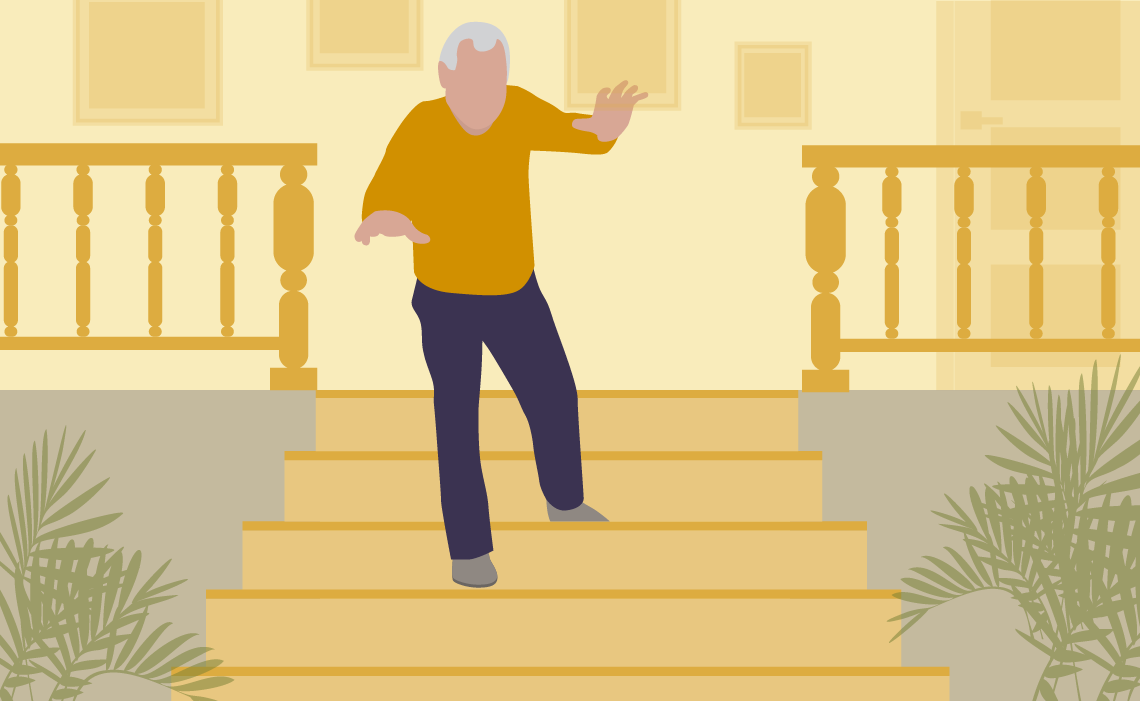One Fall Does It All: Aging in Place with Grace and Dignity

Life is a journey filled with endless opportunity, unexpected detours, and of course, the occasional setback. Unfortunately, these setbacks can be harder to bounce back from as we age, especially when it comes to our physical health.
A simple fall, for instance, can lead to a total life change. One moment you’re living independently, and the next you’re immobile, dependent on caregivers to bring you your meals and assist with day-to-day responsibilities.
Everyone deserves to enjoy their golden years, which is why it’s so important to understand the value of preventative care, as well as the potential risks of aging in place. By prioritizing your health and putting the right systems in place to provide support in the event of a setback, you can age with grace and dignity while living life to the fullest.
The Hidden Dangers of Aging in Place
Aging in place is a goal for many, but it’s not without its risks. The home, a place of comfort and familiarity, often becomes a minefield of potential hazards the older we get.
From slippery floors to poorly lit staircases, the dangers can be numerous. Yet many older adults ignore these risks, including less obvious threats to their physical health like hearing loss, vision problems, or harmful side effects from medication.
Unfortunately, falls are the leading cause of injury and injury-related deaths among adults aged 65 and older, according to CDC data. And the picture only gets bleaker from there. The following statistics from Age Safe America further underscore the importance of taking the necessary precautions when aging in place:
- Falls account for 25% of all hospital admissions and 40% of all nursing home admissions.
- Of those admitted to hospitals or nursing homes, 40% will never return to independent living and 25% will die within one year.
While these statistics are scary, they shouldn’t cast a dark shadow over your golden years. It’s important to keep in mind that falls are completely preventable in most cases.
In other words, falling doesn’t need to be a natural part of the aging process, nor does it have to be part of your story. Once you’re aware of the potential risk factors, you can take steps to manage them while putting plans in place to protect your quality of life if you do suffer a setback.
The Power of Preventive Care
Preventative care plays a crucial role in maintaining health and independence as we age. Indeed, regular check-ups and screenings can help detect potential health issues early when they’re often easier to treat.
In addition, many chronic diseases are preventable or more manageable with early intervention. Your healthcare provider can monitor your risk factors and suggest lifestyle modifications or treatments to prevent these conditions from developing or worsening.
Prioritizing ongoing preventative care can also help minimize many of the risks that often lead to serious falls at home or elsewhere. For example, regularly reviewing your medications and reducing your dependence on certain drugs can help prevent harmful interactions, overmedication, and potential side effects, all of which can negatively affect your health and well-being.
Furthermore, many people don’t realize that untreated vision or hearing loss can increase the risk of falls and other ailments among older adults. Regular vision and hearing assessments can help detect sensory impairments that may impact your quality of life and independence.
Finally, don’t let stubbornness or pride keep you from prioritizing your health as you age. Eye surgery or hearing aids may feel like a fate worse than death now, but neither is as dangerous as breaking a hip later in life.
Plus, with better sight and hearing, you’ll be able to better experience the full breadth of what life has to offer throughout your golden years.
A Comprehensive Plan Can Help You Live Life to the Fullest
As we age, the likelihood of experiencing an injury that threatens our independence and quality of life only increases. These events can be costly, resulting in hospital bills, long-term care, and potential home modifications.
Thus, having provisions for ongoing care, as well as contingencies for unexpected health crises and setbacks, are essential components of a comprehensive financial plan. With careful planning and the right team of advisors at your side, you can ensure you have the resources and support you need if crisis strikes.
At CornerCap, we provide support for every aspect of our clients’ financial health and well-being. Don’t have a way to get to a doctor? We can help with ancillary services like arranging local transportation or an in-home visit. Our team is here to help you confidently navigate the various challenges and opportunities that arise as you age.
Ralph Waldo Emerson wrote, “The first wealth is health.” Don’t wait for a crisis to happen to prioritize your well-being. Contact us today for a Plan360 evaluation to receive personalized recommendations for ongoing care and housing based on your financial situation and lifestyle preferences.


